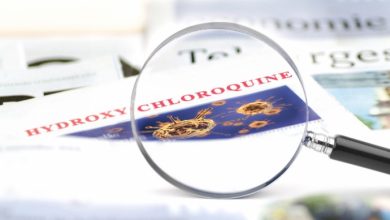How Organic Glucose Syrup Supports Sustainable and Ethical Food Production

Sustainability has become one of the most powerful forces shaping the global food industry. Today’s consumers want more than just great taste—they want assurance that their food is produced responsibly, without harming people, animals, or the planet. In this changing landscape, ingredients like organic glucose syrup play a crucial role in helping manufacturers achieve both sustainability and ethical sourcing goals.
As a natural, plant-based sweetener made from organically grown crops, organic glucose syrup supports clean-label formulation, reduces environmental impact, and enhances the social responsibility profile of food manufacturers. Compared with conventional glucose syrup, its advantages go far beyond technical performance—they touch on every aspect of sustainable and ethical food production.
1. Sourcing from Certified Organic Farms
The foundation of sustainability begins at the farm level. Organic glucose syrup is derived from non-GMO, organically grown starches, such as corn, rice, or wheat. These crops are cultivated without the use of synthetic pesticides, herbicides, or chemical fertilizers.
By relying on organic agriculture, the production of organic glucose syrup supports soil biodiversity, reduces water pollution, and encourages the use of natural compost and crop rotation techniques. This farming model helps maintain long-term soil fertility, promotes ecosystem balance, and reduces greenhouse gas emissions.
In contrast, conventional glucose syrup production often depends on intensive farming methods that degrade soil and require large amounts of chemical inputs. Therefore, switching to organic glucose syrup is a meaningful step toward building a more sustainable agricultural system.
2. Reducing the Carbon Footprint in Manufacturing
Beyond the farm, sustainability continues through the production chain. The process of producing organic glucose syrup typically follows stricter environmental standards than conventional alternatives. Certified organic processors use energy-efficient technologies, natural enzyme conversion, and non-toxic filtration methods, all designed to minimize waste and energy use.
Moreover, many organic glucose syrup suppliers are adopting low-carbon logistics and biodegradable packaging, further reducing the overall environmental footprint of the final product. For brands committed to carbon neutrality and environmental stewardship, these features make organic glucose syrup a valuable part of a broader sustainability strategy.
3. Ethical Sourcing and Transparency
Ethical sourcing is increasingly a core expectation in food production. Consumers, retailers, and regulators are all demanding greater traceability and accountability in ingredient sourcing.
Every batch of organic glucose syrup is traceable from farm to factory, verified by international certification bodies such as USDA Organic, EU Organic, or China Organic Certification. These certifications guarantee that the syrup is produced according to strict ethical and environmental standards, without exploiting labor, harming ecosystems, or using restricted chemicals.
This level of transparency strengthens brand trust and demonstrates a genuine commitment to ethical food manufacturing—a growing competitive advantage in modern B2B supply chains.
4. Supporting Vegan and Plant-Based Formulations
Sustainability and veganism often go hand in hand. As plant-based food production expands, organic glucose syrup offers a perfect fit for vegan, dairy-free, and cruelty-free formulations.
Unlike some conventional sweeteners that may involve animal-derived enzymes or refining agents, organic glucose syrup is entirely plant-based. It aligns with the values of cruelty-free production, helping food manufacturers meet vegan certification requirements while maintaining excellent product performance.
This makes organic glucose syrup particularly valuable in plant-based beverages, protein bars, dairy alternatives, and vegan confectionery, where sustainability and ethics are core selling points.
5. Contributing to a Circular and Responsible Supply Chain
Sustainability in food production also means designing a circular supply chain—one that minimizes waste and reuses by-products. Many organic glucose syrup producers adopt practices such as:
-
Utilizing renewable energy in manufacturing plants.
-
Recycling process water to reduce waste.
-
Reusing agricultural residues as bio-fertilizers or animal feed.
By integrating these circular principles, the organic glucose syrup industry is moving toward a zero-waste production model, reinforcing its alignment with global environmental objectives like the United Nations Sustainable Development Goals (SDGs).
6. Enhancing Brand Reputation and Market Value
From a B2B perspective, the sustainability benefits of organic glucose syrup translate directly into market opportunities. Today’s retailers and consumers actively seek products with clear environmental credentials.
Food and beverage companies that use organic glucose syrup can highlight this choice in their branding and product communication—positioning themselves as environmentally responsible and forward-thinking.
Additionally, products containing organic-certified sweeteners often qualify for placement in organic sections of retail stores or export channels where organic certification is mandatory. This not only improves brand image but also opens doors to premium and international markets.
7. Meeting Corporate ESG and Clean-Label Goals
For food manufacturers working toward ESG (Environmental, Social, and Governance) targets, organic glucose syrup is a practical way to demonstrate progress in sustainability and ethics. It helps reduce the environmental footprint of production, supports fair trade sourcing, and aligns with consumer values of transparency and trust.
Moreover, in the clean-label movement, organic glucose syrup offers a simple, familiar ingredient name that resonates with conscious consumers. It eliminates the need for synthetic additives and artificial sweeteners while delivering reliable technical functionality.
By integrating this ingredient, manufacturers can meet clean-label, organic, and ESG benchmarks simultaneously—strengthening their long-term competitiveness in an evolving global market.
As the world shifts toward a more sustainable and ethical food economy, the ingredients used in production play a defining role. Organic glucose syrup is more than a natural sweetener—it represents a responsible choice for the planet, for people, and for the future of the food industry.
From its organic agricultural roots to its clean, traceable production process, it helps manufacturers achieve real progress in sustainability, transparency, and ethical sourcing. By choosing organic glucose syrup, brands can reduce their environmental impact, enhance consumer trust, and contribute to a truly sustainable global food system.






